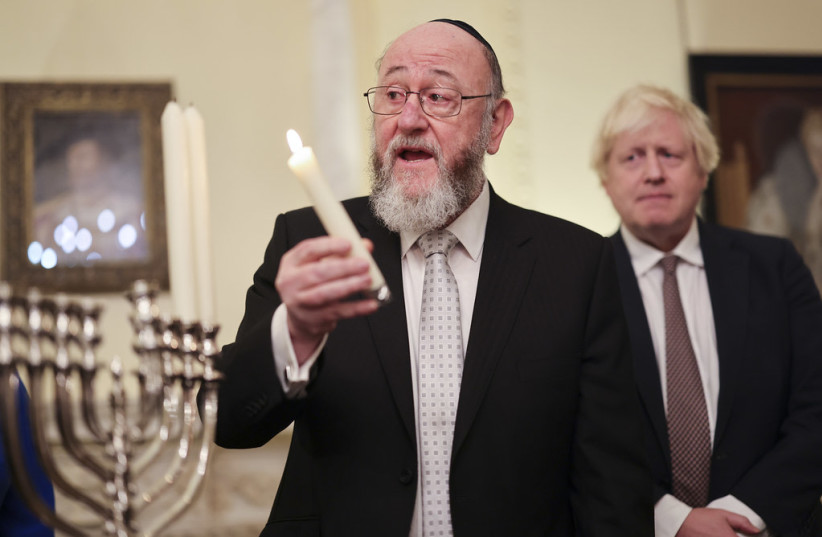UK’s Chief Rabbi: Israel has ‘not learnt the lessons’ of historic national tragedy
In a tweet posted on Tisha Be’Av, Thursday, UK’s Chief Rabbi Sir Ephraim Mirvis expressed his deep pain and concern about the enduring lessons yet to be learned from the historical tragedy of the loss of the Temple in Jerusalem.
“Together with many others, I am finding this Tisha Be’Av to be exceptionally painful,” Mirvis wrote. “After close to two millennia since the loss of our Temple in Jerusalem, we have still not learned the lessons of that horrific national tragedy.”
“Together with many others, I am finding this Tisha B’Av to be exceptionally painful. After close to two millennia since the loss of our Temple in Jerusalem, we have still not learnt the lessons of that horrific national tragedy.The first century historian, Flavius Josephus,… pic.twitter.com/nsN6GifGAT
— Chief Rabbi Sir Ephraim Mirvis (@chiefrabbi) July 27, 2023
Drawing from the account of the first-century historian Flavius Josephus, the Chief Rabbi highlighted the significance of internal unity during moments of grave danger. He noted that Jerusalem’s defense was mortally weakened by internal division and destructive conflict during the Roman siege, leading to the destruction of the Temple.
He continued, saying that over the course of 75 years, the State of Israel has achieved “miraculous” milestones, surviving against relentless enemies and insurmountable odds. Mirvis added that Israel has become a global beacon of Torah study, innovation, culture, and democracy. However, Mirvis expressed concern about the current state of affairs within the nation.
 UK Chief Rabbi Ephraim Mirvis lights Hanukkah candles with then-UK prime minister Boris Johnson (Illustrative). (credit: Number 10/Flickr)
UK Chief Rabbi Ephraim Mirvis lights Hanukkah candles with then-UK prime minister Boris Johnson (Illustrative). (credit: Number 10/Flickr)“Yet the deep polarization and political animosity on display today, leaves many of the most passionate supporters of Medinat Yisrael [the State of Israel] feeling the great pain of unprecedented division,” he wrote.
The Chief Rabbi referred to the teachings of his illustrious predecessor, Rabbi Lord Jakobovits, who emphasized the importance of internal unity even when praying for peace with external adversaries. “We cannot hope to achieve peace with those who wish us harm if we are plagued by internal strife,” Mirvis quoted.
Finding hope in its designation as a ‘mo’ed’ or ‘festival’
Despite Tisha B’Av being a day of mourning, Mirvis found hope in its designation as a “mo’ed” or “festival,” signifying a future time of great celebration. He called upon everyone to actively work towards strengthening the values of the cherished Jewish State, fostering unity, and embracing respectful disagreement.
“Even in these most challenging of days, let us resolve to actively work towards a strengthening of all that we value in our cherished Jewish State, and a time when unity and respectful disagreement will reign,” he concluded.





Comments are closed.